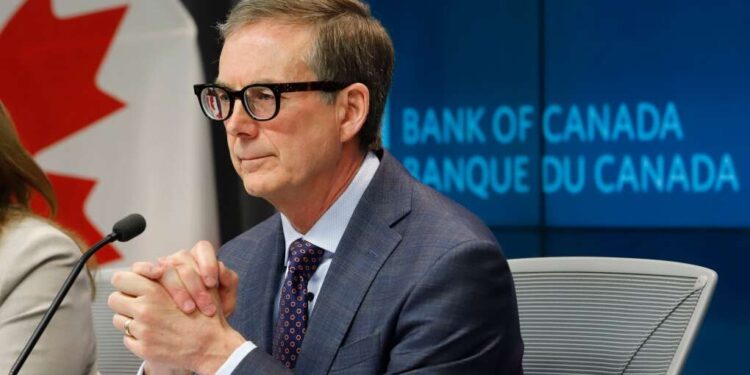Bank of Canada (BoC) Governor Tiff Macklem has sent a hawkish message, expressing doubts about whether current interest rates are sufficient to curb inflation back to the target levels. This statement comes in the wake of the BoC’s decision to maintain borrowing costs at a 22-year high, made just a day earlier.
On Wednesday, the BoC opted to keep its key interest rate steady at 5%, acknowledging a period of slower economic growth while also leaving the door open for future hikes if inflationary pressures endure. Notably, inflation in Canada has remained above the central bank’s 2% target for a staggering 27 months.
Speaking at the chamber of commerce in Calgary, Alberta, Governor Macklem suggested two possible explanations for persistent inflation. One is that interest rates may be taking longer to influence price stability, while the other is that monetary policy might not yet be sufficiently restrictive to restore stable prices. He emphasized the potential challenges of delaying corrective actions, stating, “And unfortunately, the longer we wait, the harder it’s likely to be to reduce inflation.”
The BoC had already raised interest rates by a quarter-point in both June and July in an attempt to address stubbornly high inflation. However, Macklem highlighted that there is currently limited downward momentum in underlying inflation.
Despite Canada’s economy unexpectedly contracting at an annualized rate of 0.2% in the second quarter—a sign that the nation may already be in a recession due to the impact of higher rates—inflation continued to surge, reaching 3.3% in July with core measures remaining around 3.5%.
Governor Macklem emphasized the central bank’s desire to avoid excessive rate increases, acknowledging that persistently high inflation would be more detrimental to Canadians than elevated borrowing costs. He underscored the importance of maintaining the current approach, saying, “We need to stay the course.”
Macklem’s remarks contrasted with recent messages from Canadian politicians. Ahead of the rate decision on Wednesday, three provincial premiers had written to Macklem, urging him to keep rates unchanged. Federal Finance Minister Chrystia Freeland also publicly supported the central bank’s decision as “a welcome relief for Canadians.”
While acknowledging that the economy had cooled down since its overheated state in the first half of 2022, and that reduced growth had helped alleviate price pressures, Governor Macklem emphasized the necessity of bringing inflation down to the 2% target.
Looking ahead, Macklem stated that the central bank would be closely monitoring evidence of easing price pressures. In terms of market expectations, money markets currently indicate a 14% chance of a rate hike when the BoC next convenes in late October.
Moreover, a majority of economists polled by Reuters at the end of the previous month, comprising 24 out of 34 experts, anticipate that the central bank will maintain its policy rate at the current level or potentially raise it until at least the end of March 2024.











